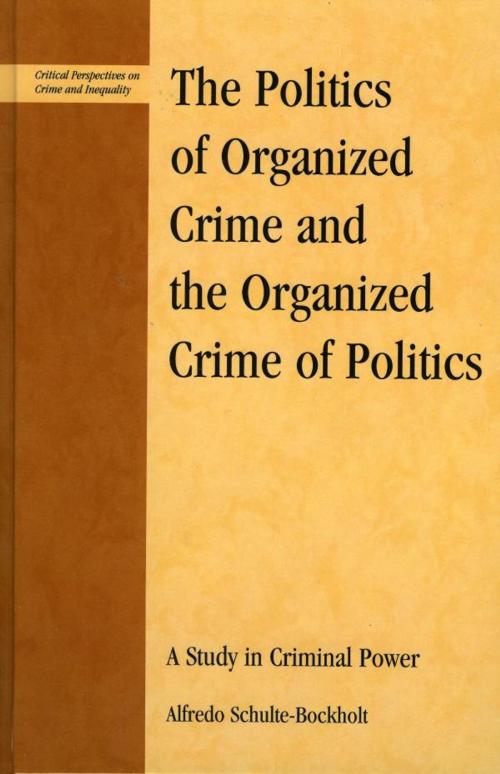The Politics of Organized Crime and the Organized Crime of Politics
A Study in Criminal Power
Nonfiction, Social & Cultural Studies, Social Science, Crimes & Criminals, Criminology| Author: | Alfredo Schulte-Bockholt | ISBN: | 9780739159248 |
| Publisher: | Lexington Books | Publication: | March 7, 2006 |
| Imprint: | Lexington Books | Language: | English |
| Author: | Alfredo Schulte-Bockholt |
| ISBN: | 9780739159248 |
| Publisher: | Lexington Books |
| Publication: | March 7, 2006 |
| Imprint: | Lexington Books |
| Language: | English |
More than simply a study of the mafia, Alfredo Schulte-Bockholt's work argues that collaboration between political science and criminology is critical to understanding the real nature of organized crime and its power. Schulte-Bockholt looks at specific case studies from Asia, Latin America, and Europe as he develops a theoretical discussion—drawing on the thought of Max Horkheimer, Theodor Adorno, and Antonio Gramsci—of the intimate connections between criminal groups and elite structures. Ranging from an historical discussion of the world drug economy to an examination of the evolution of organized crime in the former Soviet Union, the book extends into a consideration of the possible future development of organized crime in the age of advanced globalization.
More than simply a study of the mafia, Alfredo Schulte-Bockholt's work argues that collaboration between political science and criminology is critical to understanding the real nature of organized crime and its power. Schulte-Bockholt looks at specific case studies from Asia, Latin America, and Europe as he develops a theoretical discussion—drawing on the thought of Max Horkheimer, Theodor Adorno, and Antonio Gramsci—of the intimate connections between criminal groups and elite structures. Ranging from an historical discussion of the world drug economy to an examination of the evolution of organized crime in the former Soviet Union, the book extends into a consideration of the possible future development of organized crime in the age of advanced globalization.















